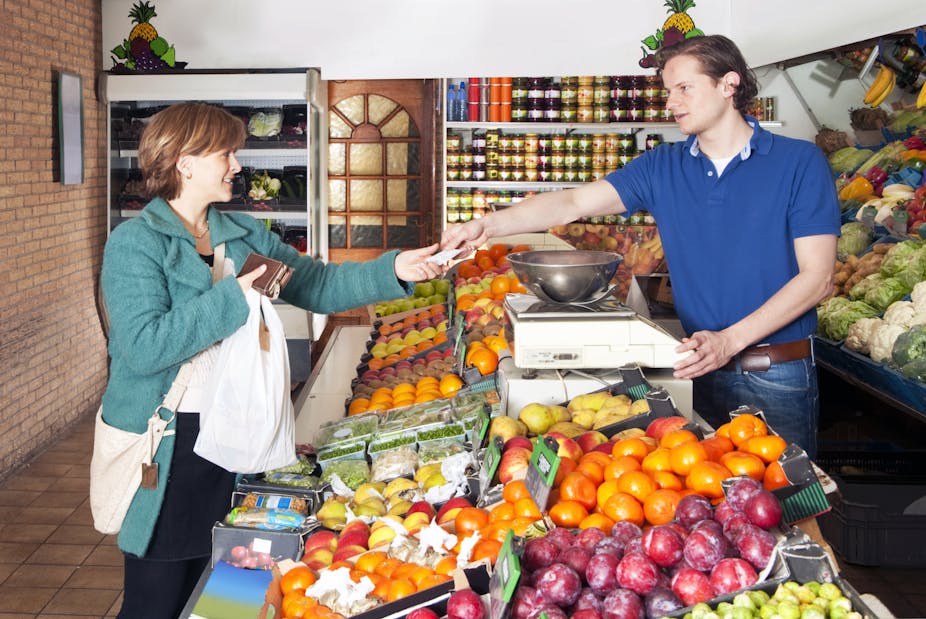We all know that children learn by example. I know if I swear in front of my four year old I’m going to hear that word again soon, probably right in front of my mother-in-law, a school teacher, or a priest.
But even as adults, it turns out that we remain more like more like kids in the playground than we like to admit.
As I discovered while conducting a study into the beliefs that influence our environmental actions, most grown-ups still want to do what “the cool kids” are doing. Or to put it in more academic terms, we are more likely to engage in behaviours that we think are socially acceptable, or “normal”.
Interestingly, few people wanted to admit to themselves how much those social norms swayed their own behaviour.
Striving to be normal
My study, involving 1637 people from Brisbane and Moreton Bay in south-east Queensland, examined whether people walked for transport, shopped with reusable bags, turned off lights when leaving a room and switched off appliances when not in use.
Other research, mostly coming from the US, has found that descriptive normative messages such as “join your fellow citizens in helping to save the environment” had a relatively strong influence on environmentally-friendly behaviour.
Signs on a bathroom door can have a similar impact. A study of hotel guests’ behaviour found that messages such as “The majority of guests who stayed at our hotel do recycle their towels at least once” increased towel reuse by more than 28%.
Another study found that individuals were more likely to engage in kerbside recycling if they believed that their neighbours recycled.
Everyone needs good neighbours
Yet when I sent out my surveys, with a question asking “About how often do you think that your neighbour shops with reusable bags?”, I received emails, phone calls and letters - including hand-written, five-page epistles - expressing indignation that I would imply they should be spying on their neighbours.
Even some of my friends expressed outrage that I would imply their behaviour may be governed, even in part, by what they think their neighbour or their friend is doing.
However, when the surveys I sent out were all returned and I sat down and crunched the numbers, I found that people are, indeed, keeping a very close eye on their neighbours and friends.
In fact, beliefs about the actions of friends and neighbours were predictive of whether people chose to walk, use green bags and turn off unused lights and appliances.
Barriers to action
Of course, what we think other are doing isn’t the only factor influencing environmentally-friendly behaviour. Issues around convenience, health and cost are also important. For example, people were more likely to walk for transport if they thought it would be convenient and if they believed it would be a good way to relieve stress, which it is.
While people were less likely to switch off appliances at the wall if they were concerned about having to reset timers and clocks, they were more likely to switch off appliances if they wanted to save money.
Identity was also important. If you think of yourself as someone who is concerned about environmental issues, research shows you are more likely to engage in environmentally-friendly behaviour.
Change starts at home
It’s a good thing that we learn by example and want to feel like part of a community. We can harvest these very human characteristics to bring about important social and environmental changes.
That’s why it’s great when celebrities with millions of fans, such as Miranda Kerr and Woody Harrelson, use the internet and other media to spread the word about environmental issues.
But you are watched too, as am I. Our friends, family and neighbours notice what we do, and that helps them decide what is socially acceptable in our groups.
In the end we are all watching and learning from each other. I’m heading out to the shops now. I’ll just grab my green bag on the way out the door. Have you remembered yours?

